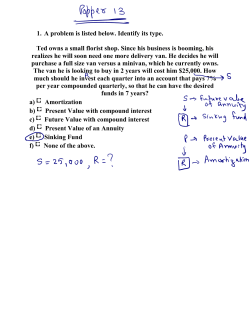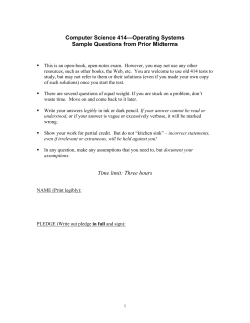
Building Learning Teams: How to Explicitly Create Teamwork Skills
OBTC_2011_Proceedings-Page0102 Building Learning Teams: How to Explicitly Create Teamwork Skills Janet A. Hillier Kelley School of Business Indiana University 1309 E. 10th Street, BU640F Bloomington, IN 47401 Telephone: (812) 855-7118 Email: jhillier@indiana.edu Linda M. Dunn-Jensen Kelley School of Business Indiana University 1309 E. 10th Street, BU630E Bloomington, IN 47401 Telephone: (812) 855-1953 Email: ldunnjen@indiana.edu OBTC, 2011 Marquette University Milwaukee, Wisconsin 1 OBTC_2011_Proceedings-Page0103 ABSTRACT Most undergraduate and graduate business students participate in team-based class projects. Yet, the team experience doesn't always capture the potential of team members. While students are assigned into “teams” they often barely function as groups. The explicit process of becoming a team is often not taught. Building off Lencioni (2002) "5 Dysfunctions of a Team” model, and many years experience working with high performing and highly dysfunctional teams, this session will review a structured process in which the participants learn to "build a learning team" while also engaging in a team building activity called "Who owns the Zebra (Bailif, 1979)?" Keywords: team process, interactive activities, feedback PLANNING DETAILS Proposed audience: Instructors at all levels who have team based projects in their courses. Maximum number of participants: A maximum of 40 people. Type of session: Activity-based with debrief throughout the session. Special requirements: LCD Projector for Laptop Hookup. Tables and movable chairs are requested. Length or Type: Please indicate min & max 90 minutes 2 OBTC_2011_Proceedings-Page0104 DUCTION INTROD Team-baseed projects are ubiquitous in undergraduate and graduuate business ccourses. The aaim of team-b based projects in n education is to train futuree employees with w teamworkk skills. Yet, m many course p projects fail to o achieve th his goal. One reason r offered d is that there has not beenn enough expliicit developmeent of teamwo ork skills (notaable exception n Chen, Donaahue & Klimso oki, 2004). Thhus, the goal oof this session n is to address that gap by preesenting an exxplicit process to increase th he students' te amwork skillss. To provide context for explicit leaarning about the t team proceess, the participants will als o be engagingg in a team acttivity called "W Who owns the Zebra? Z (Bailiff, 1979)" THEORE ETICAL GRO OUNDING There are several characcteristics that identify i a high h performing team (Katzennbach & Smith h, 2006). Thesse characterisstics include a shared purpo ose, productivve team normss, mutual accoountability, andd information n processingg skills. Howeever, knowingg what identifies a team andd the process oof becoming a high perform ming team doess not just happ pen by itself. Team T membeers must learn to become skkilled team meembers. ( presentts five dysfuncctions of a teaam such as: lacck of trust; feaar of conflict; lack of Lencioni (2002) commitmeent; avoidancee of accountab bility; and inatttention to ressults. If these are dysfunctio onal behaviorrs, then could d we determin ne what would d be functional behaviors off a team? Whhat would it takke to have a teeam engage in trust; "producctive" conflictt; commitmentt; accountabiliity; and attenttion to results?? Using thesee five functionall areas for a teeam, we have developed d an explicit proceess using theorretically basedd tools and feedback loops l to increase the teamw work skills of students. s Thiss is illustrated in the figure below: 3 OBTC_2011_Proceedings-Page0105 Team members develop teamwork skills by working at it [Tool to learn team process in bracket] • This requires attention to the process of goal attainment as well as the achieving the goals [team charter] • Teams always create shared goals, productive team norms and mutual accountability [team charter] • Effective team members bring interpersonal, communication and collaboration skills in addition to technical expertise [team effectiveness survey] • Teams encourage different points of view and honor productive conflict [team effectiveness survey] • Teams regularly assess performance and exchange feedback to improve performance [personal assessment of individual (self-assessment) & team performance] • A team really is only as strong as its individual members, so each participant must be fully engaged for the team to perform optimally SESSION DESCRIPTION We propose a 90 minute session. The session will begin with the participants being assigned into teams. As team members, the participants will engage in a team activity called "Who owns the Zebra?" This activity is a logic based puzzle which is structured with asymmetrical information (Edmondson, Roberto & Watkins, 2003). so that team members are dependent on and must work together to solve the problem. Using this team activity as the context, the session will then have scheduled debriefs in which the participants will participate in reviewing handouts that cover the explicit process of becoming a team and sharing any best practices. This process will be illustrated by discussing the team building process, team charter, team effectiveness survey, and personal assessment of individual & team performance. Here is a sample of the Team Effectiveness Form. The focus of this feedback is on behaviors at the team level. This allows the students to begin to get comfortable with the process of feedback but does not focus on individual behaviors thus creating a process that can be effective for both the students to give and receive feedback. 4 OBTC_2011_Proceedings-Page0106 Takeaways will be proviided in the forrm of handouuts which will iinclude • Who W owns the Zebra instrucction guide • Team T Charter • Team T Effectiveeness Survey • Personal Assessment of Indiividual & Team m Performancce APPLICA ATION TO CONFERENC CE THEME The confeerence theme this t year is "op pen to possibiilities." As innstructors, are we open to th he possibility that we may neeed to extend our current th hinking about how studentss learn to becoome team mem mbers and puush ourselves to take respon nsibility of nott only providing the contennt of team learrning but also the explicit teeam process. With W this posssibility, we nott only enhancee the potentiaal students cann achieve in th heir collegiate team performan nce but also deevelop studen nts' teamwork skills as they bbecome organnizational mem mbers. NCES REFEREN n-Claude. 1979. Who owns the Zebra? *P Puzzle adaptattion taken froom Super Puzzzle. Prentice H Hall Bailif, Jean Publishingg. M., & Klimoskki, R.J. 2004. Training T undeergraduates too work in orgaanizational team ms, Chen, G., Donahue, L.M L 3, 277-40. Academy Of Management Learning, Edmondson, A. 1999. Psychological P ms. Administrrative Science safety and leaarning behavioor in work team Quarterly, 44, 4 350-383. 5 OBTC_2011_Proceedings-Page0107 Edmondson, A., Roberto, M.A. & Watkins, M. 2003. A dynamic model of top management team effectiveness: Managing unstructured task streams. Leadership Quarterly, 14, 297-325. Katzenbach, J.R. & Smith, D.K. 2006. The wisdom of teams. Collins: New York, NY. Lencioni, P. 2002. The five dysfunctions of a team. Jossey-Bass: San Francisco, CA. 6
© Copyright 2025





















